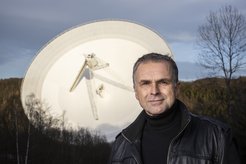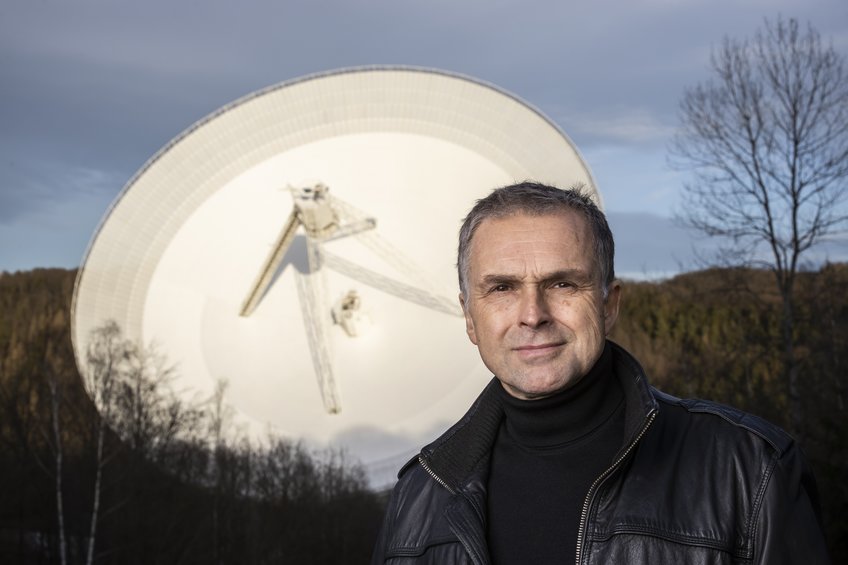The Opticon-RadioNet Pilot Project (ORP)
European Commission facilitates use of European telescopes

Prof. Anton Zensus, Director and Head of the Research Department Radio Astronomy/VLBI at the Max Planck Institute for Radio Astronomy (MPIfR) will take over the scientific coordination for the participating radio astronomical institutes in the Opticon-RadioNet pilot project. In the background: MPIfR’s 100-m radio telescope near Bad Münstereifel-Effelsberg.
EU-funding under the Opticon-RadioNet Pilot Project (ORP) will be used over the next four years to provide astronomers with reciprocal access to the best ground-based telescopes from European institutes. This will include not only their free use, but also training and support in operating the complex infrastructures.
Prof. Anton Zensus, director and head of the Radio Astronomy/VLBI research department at the MPIfR, who will scientifically coordinate the participation of the radio astronomical institutes, is pleased:
"Imagine you have a brilliant research idea and need a top radio telescope for it. No obstacle for European researchers. That's because the EU-funded RadioNet network has not only provided astronomers with Europe's best radio telescopes free of charge for 20 years; it also makes observing easier with on-site training and service. Now we have gone a step further and joined forces with optical telescope operators to become even more synchronized in the Opticon-RadioNet pilot project. A great success for all who believe in the European idea. And a great step forward for science. Because astronomical phenomena can only be understood if you have the best observing instruments available."
However, the Bonn scientists are concerned about the increasing radio interferences from new mobile phone systems. "If we don't act now, then wide areas of radio astronomical research will no longer be possible in the foreseeable future", says Prof. Michael Kramer, director and head of the Fundamental Physics in Radio Astronomy research department at the MPIfR. "I am in particular pleased that, with the help of the approved EU funding, we will be able to develop sophisticated strategies to reduce the interfering signals and their impact and thus be able to continue to maintain the Effelsberg site for radio astronomy."
